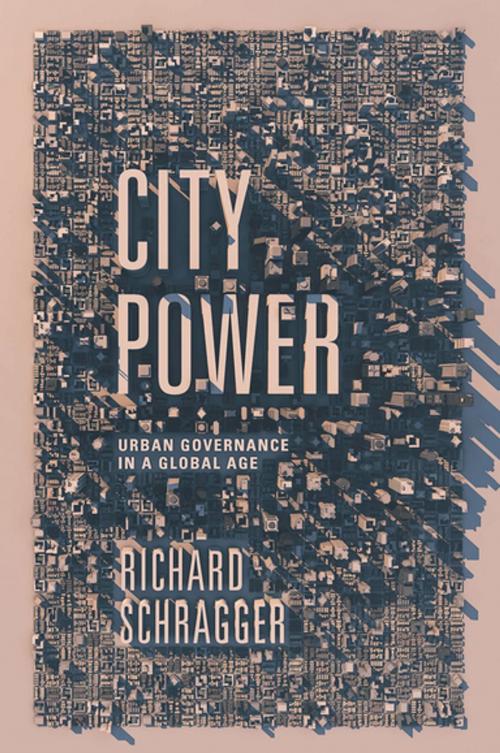City Power
Urban Governance in a Global Age
Nonfiction, Social & Cultural Studies, Current Events, Political Science, Government, Local Government, Civics| Author: | Richard Schragger | ISBN: | 9780190246686 |
| Publisher: | Oxford University Press | Publication: | September 1, 2016 |
| Imprint: | Oxford University Press | Language: | English |
| Author: | Richard Schragger |
| ISBN: | 9780190246686 |
| Publisher: | Oxford University Press |
| Publication: | September 1, 2016 |
| Imprint: | Oxford University Press |
| Language: | English |
In 2013, Detroit filed the largest municipal bankruptcy in US history. That dubious honor marked the end of a long decline, during which city leaders slashed municipal costs and desperately sought to attract private investment. That same year, an economically resurgent New York City elected a progressive mayor intent on reducing income inequality and spurring more equitable economic development. Whether or not Mayor Bill de Blasio realizes his legislative vision, his agenda raises a fundamental question: can American cities govern, or are they powerless in the face of global capital? Conventional economic wisdom asserts that cities cannot do very much. Conventional political wisdom asserts that cities should not do very much. In City Power, Richard Schragger challenges both these claims, arguing that cities can govern, but only if we let them. In the past decade, city leaders across America have raised the minimum wage, expanded social services, put conditions on incoming development, and otherwise engaged in social welfare redistribution. These cities have not suffered from capital flight - in fact, many are experiencing an economic renaissance. Schragger argues that the range of city policies is not limited by the requirements of capital, but instead by a constitutional structure that serves the interests of state and federal officials. Maintaining weak cities is a political choice. City Power shows how cities can govern despite constitutional limitations - and why we should want them to. In an era of global capital, municipal power is more relevant than ever to citizen well-being. A dynamic vision of city politics for the new urban age, City Power demonstrates that the city should be at the very center of our economic, legal, and political thinking.
In 2013, Detroit filed the largest municipal bankruptcy in US history. That dubious honor marked the end of a long decline, during which city leaders slashed municipal costs and desperately sought to attract private investment. That same year, an economically resurgent New York City elected a progressive mayor intent on reducing income inequality and spurring more equitable economic development. Whether or not Mayor Bill de Blasio realizes his legislative vision, his agenda raises a fundamental question: can American cities govern, or are they powerless in the face of global capital? Conventional economic wisdom asserts that cities cannot do very much. Conventional political wisdom asserts that cities should not do very much. In City Power, Richard Schragger challenges both these claims, arguing that cities can govern, but only if we let them. In the past decade, city leaders across America have raised the minimum wage, expanded social services, put conditions on incoming development, and otherwise engaged in social welfare redistribution. These cities have not suffered from capital flight - in fact, many are experiencing an economic renaissance. Schragger argues that the range of city policies is not limited by the requirements of capital, but instead by a constitutional structure that serves the interests of state and federal officials. Maintaining weak cities is a political choice. City Power shows how cities can govern despite constitutional limitations - and why we should want them to. In an era of global capital, municipal power is more relevant than ever to citizen well-being. A dynamic vision of city politics for the new urban age, City Power demonstrates that the city should be at the very center of our economic, legal, and political thinking.















